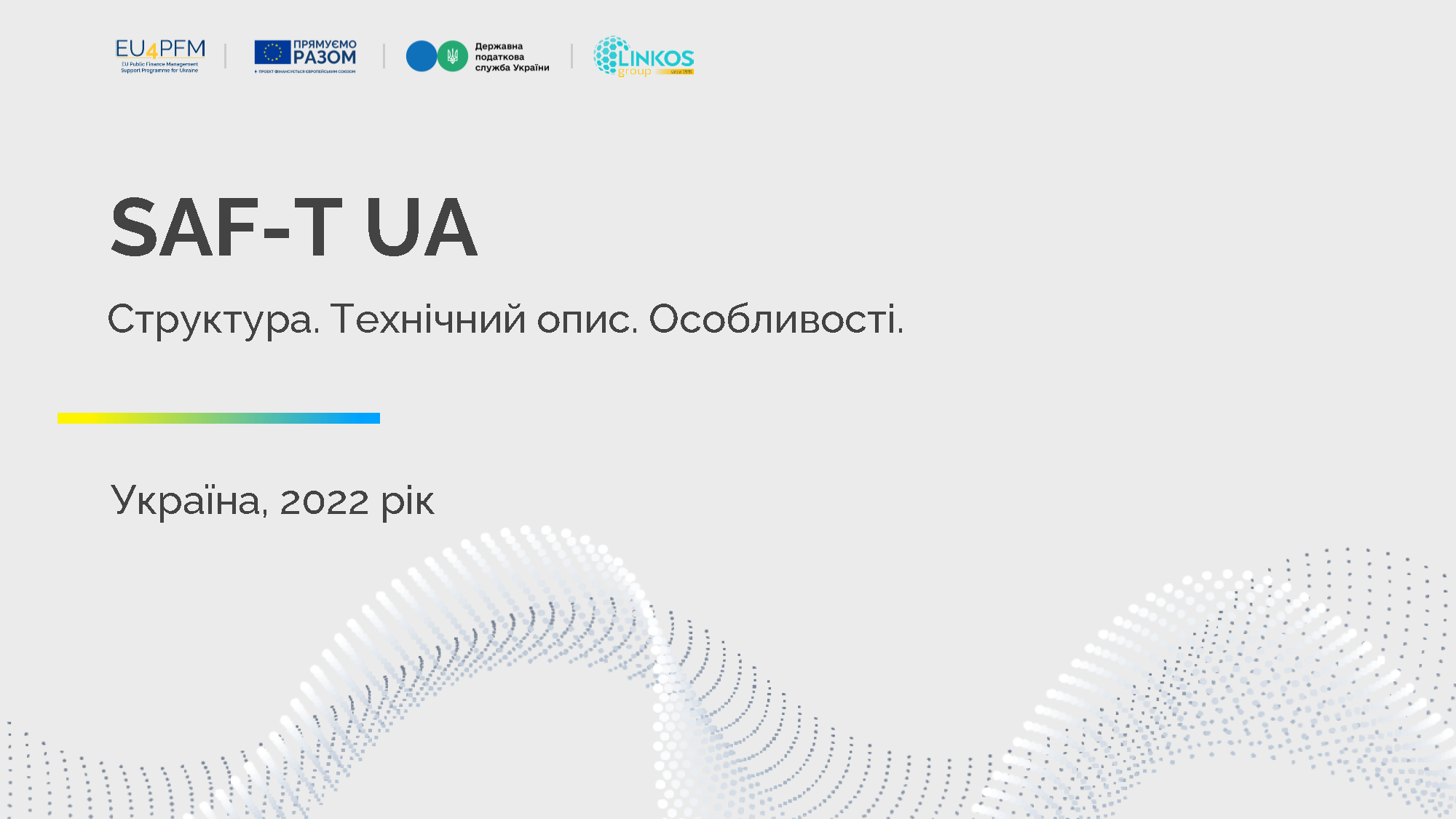Presentation of technical description of the standard audit SAF-T UA file for developers and suppliers of the ERP systems and accounting software has been presented today.
Event was attended by Deputy Chairman of the State Tax Service of Ukraine for Digital Development, Digital Transformations and Digitization Natalia Kalenichenko and the EU4PFM International Key Tax Expert Paulus Mayauskas.
"I would like to sincerely thank the EU4PFM project and the Linkos team for joining such an important project in our country. At this difficult time, Ukraine is confidently continuing to move towards the European Union. In the near future taxpayers will be able to use the EU standards in cooperation with tax authorities"- said Natalia Kalenichenko.
"In this difficult time, we have a great respect for the fact that the State Tax Service and developers, despite difficult circumstances, were able to launch a project that is really important for Ukraine. The SAF-T is a very modern element, because as of today more than 10 countries have fully implemented it. This is a tool that significantly reduces costs of both tax and business and improves quality of the STS’s services" – stated Paulus Mayauskas.
During the presentation, participants were informed about:
technical description of the SAF-T UA elements;
features of building an XSD file for implementation of the possibility of forming the SAF-T UA in accounting systems.
As a part of the e-audit implementation, a detailed technical description of elements of the standard audit file (SAF-T UA) and control scheme of the XML documents (XSD file) was developed, taking into account provisions of Procedure for providing documents of major taxpayers in the electronic form, approved by Order of the Ministry of Finance of Ukraine № 1393 as of 07.11.2011 and ensuring compatibility with the OECD model.
Project is implemented with support of the EU4PFM project.

 The only state web portal
The only state web portal The only state web portal
The only state web portal